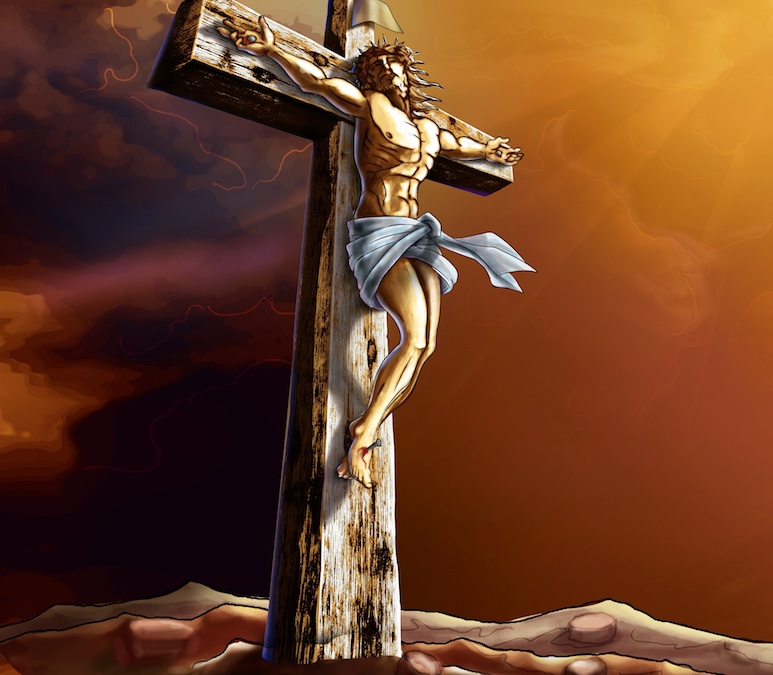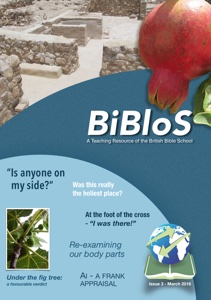I don’t do crucifixions, for which I am grateful. It’s a Roman job so I don’t have to do it. My jurisdiction ends once I have passed the prisoner over to the death squad. Personally I have no problem with the death penalty. It’s the means of death that I don’t like. The Law of Moses permits the death penalty and legislates for the means. It is death by stoning. There is a curse put upon those left to die on a tree and even if a prisoner deserves to die I’m not so sure that anyone should die under a curse. Stoning should be quick, over in a matter of minutes but crucifixion drags on for hours, days even. So I leave all that to the Romans.
Until the incident of the carpenter from Nazareth I had not had a great deal to do with executions. They happened and if the Romans were involved – and they usually were – then execution was by crucifixion. So if one of “my” prisoners was to die on a cross I left it to the Romans. But the case of Jesus was different in some way. I suppose you could say he had got to me. I had been part of the arresting squad and saw how he conducted himself when he was brought in. And then the trial: I was there for most of it and I know a stitch-up when I see one. Jesus had been tried and condemned long before we brought him in for questioning. I think he knew it and yet he conducted himself with perfect dignity throughout unlike, it has to be said, the High Priests and their yes-men and their dodgy witnesses. It left a bad taste, I can tell you.
So I admit that something about this prisoner had caught my attention and I wanted to see how it would finish. So later that day I took a walk up to Golgotha or Skull Hill, if you prefer. The place where the Romans held their public crucifixions. I was off duty by then as most of the Temple employees were starting to stand down before Passover started, other than those working within the precinct of course. But even though I was off duty I kept my distance from the crowd. I had seen and heard how volatile things had become since Jesus arrived in Jerusalem the previous week. Crowds can easily become mobs so I wanted to keep my distance just in case things got out of hand and the Romans over reacted.
When I reached the top of the hill I saw the centurion in charge. His name was Longinus and I had a nodding acquaintance with him. We had worked together once or twice and he was not a bad sort. He caught my eye and nodded to me. “What’s up?” he asked, “Your High Priests changed their minds or something?”
I told him that I was off duty although I was certain that there would be no change of mind from our authorities. Longinus nodded and said the same for his superiors. “Once the last nail goes in there is no reprieve.”
We looked up at the three victims. Jesus was between two burly hard cases, one of who had fainted while the other had his eyes fixed on the horizon while he muttered to himself.
“I didn’t think your lot would change their minds” said Longinus, “Not after the way they carried on earlier.”
I asked what he meant and he told me that a party of priests had come to observe the nailing up and had been notably cruel in their comments. “Strange thing was,” continued the Centurion, “Your King of the Jews did not say anything except to forgive them. Or us.”
“You what?” I asked.
“‘Father, forgive them; they don’t know what they are doing’ is what he said. The other two up with him gave us the usual mouthful of abuse but your king just bit his lip and kept quiet. he didn’t take the juice either.”
“Juice?” I asked.
“The condemned get a swig of wine and myrrh. It’s meant to deaden the pain a bit.”
I did not want to stand at the foot of a cross gawping up at a dying man
but I could not stop myself. He was a mess. There was more blood than flesh visible; whoever had done the whipping had not wanted to stop. Through his wrists and ankles were cruel, hard spikes. Flies were swarming on his left wrist. which had bled the most. But he was still alive. His eyes were scanning the crowd, looking for someone. And then he found them, a little group standing apart from the remaining hecklers, an older woman who looked close to collapse being supported by two younger ones, one of them very pretty. And then just behind them a youngish man. He was weeping. Jesus looked at the older woman and spoke to her. Just one word at first: “Mother.” His voice was quiet but clear enough to carry. He took a breath and spoke some more: “Mother, he is your son now”. His tone would make a stone weep. Then he spoke a little louder, this time to the man: “She is your mother.” The man nodded in acknowledgment, took the older woman’s arm, and led her away, the two of them leaning on each other.

Jesus shut his eyes. I could see tears running down his cheeks. Then he took another deep breath and spoke, this time to us. “I am so thirsty.” I did not know what I could do but the Centurion pointed at a wine flask propped against a boulder a little to our right. “I let my lads have as much to drink as they want when they’re on crucifixion duty” explained Longinus. “It’s a hellish job and the wine helps a bit. Give him some.”
I asked how and he pulled out a sponge from his kit bag.
“Soak this in the wine, put it on a spear and let him suck from it,” he explained.
So I gave Jesus a drink, His last one. He nodded, in thanks I believe, and then spoke again. Loud and clear this time but I am not sure to whom.
“Finished.”
Then he said something strange, Well, perhaps not so strange when you think about it. he said a little prayer. One of those prayers we all learn as children: “Father, please look after my spirit.”
And then he breathed out. A long, controlled breath out, like an athlete preparing for a race. But there was no breath back in. His head went forward at an impossible angle. He was dead. It was finished.
The Centurion could not take his eyes off Jesus either. He spoke softly to me: “You know, perhaps he really was the son of your God.”
Shalom.
P. S. You can read a little background to this article on our web site here.
 This article is from BiBloS, a teaching resource of the British Bible School. To read more articles or download the whole of Issue 3, click here.
This article is from BiBloS, a teaching resource of the British Bible School. To read more articles or download the whole of Issue 3, click here.
